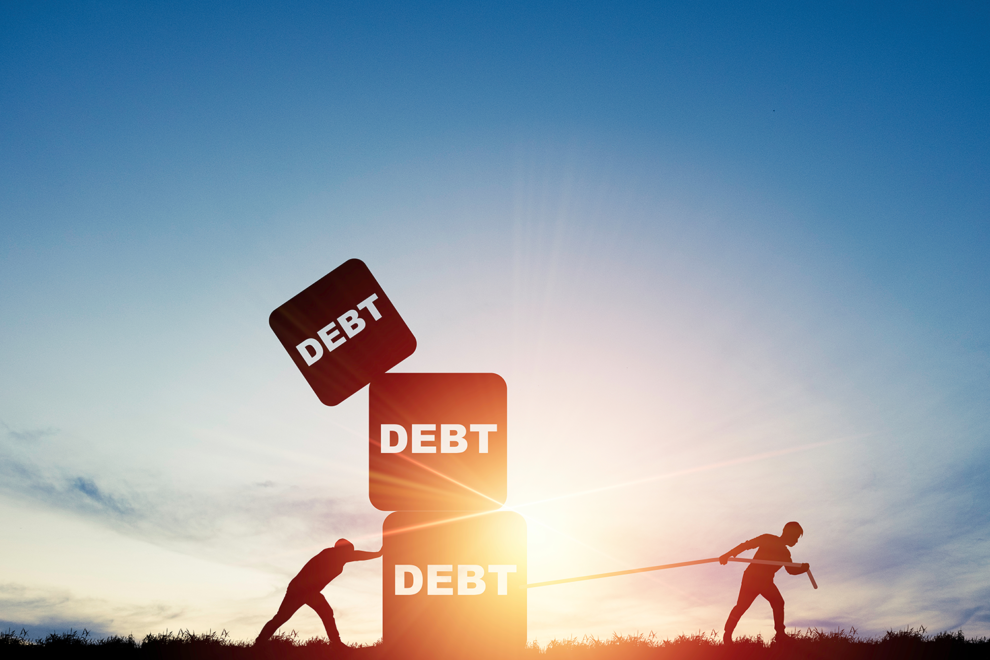Debt is a common problem many people face, and it can be overwhelming and stressful, to say the least. However, proven strategies exist to get out of debt and stay debt-free. This article will discuss five proven strategies that have helped countless people achieve financial freedom. By understanding debt, analyzing and prioritizing it, creating a budget, increasing income and reducing expenses, consolidating and negotiating debt, and following tips for staying debt-free, you can take control of your finances and build a brighter future.
Understanding Debt and Its Consequences
Before tackling your debt, it’s important to understand what your debt is and what impact the debt has on your life. Debt is money owed to someone, whether a loan, credit card balance, or mortgage. When you have debt, you essentially borrow money from someone else and agree to pay it back with interest. While debt can be helpful in certain situations, such as purchasing a home or paying for an education, it can also be a burden if you have too much of it.
Debt can have severe consequences for your financial well-being. High debt levels can lead to stress, anxiety, and even depression. It can also make it difficult to save for the future, invest in your retirement, or even afford necessities like food and housing. Additionally, debt can affect your credit score, making it harder to get approved for loans or credit cards in the future.
Analyzing and Prioritizing Debt
Once you understand what debt is and how it affects your life, you should analyze your debt situation. Begin by making a list of all your debts. Include the name of the creditor, the balance owed, and the interest rate; this will give you a clear picture of how much you owe and to whom.
Next, make your debts a priority based on their interest rate. Focus on getting these debts with the highest interest rates out of the way first, as these are the ones that are costing you the most money in interest charges. Consolidate all your debts into one loan with a lower interest rate; this is a good idea too, which we’ll discuss later in this article.
Creating a Budget and Sticking to It
Creating a budget is essential for getting out of debt and staying debt-free. A budget is a plan to help you track your money, your income, and your expenses. It helps to make sure you’re living within your means. To create a budget, start by calculating your monthly income and expenses. Include all your bills, groceries, transportation costs, and other expenses.
Once you can see all your income and expenses written down, look for areas where you can cut back; this might mean eating out less, canceling subscriptions you don’t need, or finding ways to save on utilities. Next, allocate a portion of your income to paying off your debts; this might mean making extra payments on the debts with the highest interest rates or paying off one debt at a time until it’s gone.
Increasing Income and Reducing Expenses
If your budget doesn’t leave much room for debt repayment, you might need to find ways to increase your income or reduce your expenses; this might mean finding a part-time job, freelancing, or selling items you no longer need. You can also look for ways to reduce expenses, such as negotiating bills, shopping for deals, or downsizing your living space.
While increasing income and reducing expenses can be challenging, it’s important to remember that every little bit helps. Over time, all the small changes can mount up to a big difference, so don’t be discouraged if you don’t see results immediately.
Consolidating and Negotiating Debt
Consolidate all the debts you have into one single loan that has a lower interest rate; this can be a smart strategy to help you get out of debt. You can do this with a personal loan, a balance transfer credit card, and also a home equity loan. By consolidating your debts, you’ll have just one monthly payment, which can make your finances much easier to manage.
In addition to consolidating your debts, you can also try negotiating with your creditors; this might mean asking for a lower interest rate, a payment plan that fits your budget, or even a settlement offer if you’re struggling to make your payments. While not all creditors will be willing to negotiate, it’s worth trying if you’re overwhelmed by debt. Just be sure to get any agreements in writing and stick to your end of the deal.
Tips for Staying Debt-Free
Once you’ve paid off your debts, taking necessary precautions to stay debt-free is essential; this might mean continuing to live frugally, avoiding unnecessary purchases, and building an emergency fund to cover unexpected expenses. It’s also vital to plan for your future financial goals, such as retirement savings or a down payment on a house.
Other tips for staying debt-free include:
- Using cash instead of credit cards.
- Tracking your expenses.
- Avoiding payday loans or other high-interest loans.
Remember that staying debt-free is a journey; maintaining good financial habits takes time and effort.
Resources for Debt Management and Counseling
If you’re struggling with debt, many resources are available to help you. Some options include credit counseling agencies, debt management programs, and financial coaches. These professionals can help you create a plan to get out of debt, negotiate with creditors, and develop good financial habits for the future.
Additionally, many books, podcasts, and online resources are available on personal finance and debt management. Some popular books include “The Total Money Makeover,” written by Dave Ramsey, “Your Money or Your Life,” written by Vicki Robin and Joe Dominguez, and the “ChooseFI” podcast.
Success Stories of People Who Got Out of Debt
One of the most inspiring things about getting out of debt is hearing success stories from others who have done it. Countless stories of people have paid off tens of thousands of dollars in debt, saved for emergencies, and achieved financial freedom. These stories can serve as motivation and inspiration for anyone who is struggling with debt.
Common Mistakes to Avoid When Getting Out of Debt
While there are many strategies for getting out of debt, there are also common mistakes to avoid. These include taking on more debt, neglecting to create a budget, failing to prioritize high-interest debts, and not seeking help when needed. It’s important to be patient and persistent when getting out of debt and to stay focused on your financial goals.
Conclusion
Getting out of debt is a challenging but rewarding journey. By understanding your debt, prioritizing it, creating a budget, increasing income and reducing expenses, consolidating and negotiating debt, and following tips for staying debt-free, you can get control of your finances and build a brighter future. Remember that every little bit helps and that staying debt-free is a journey that takes time and effort. With persistence, patience, and sound financial habits, you can achieve the financial freedom you deserve and live the life you want.






